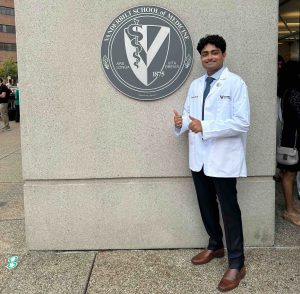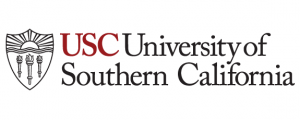Working together with the Joint Educational Project (JEP) at USC, we have developed a curriculum to enhance elementary school STEM education consisting of four lesson plans developed from the methods and results of MacLean Lab research, which are aligned with the Next Generation Science Standards for 4th grade. The curriculum and its implementation and assessment in K-12 schools partnered with USC has been published in
Connected Science Learning.
We ended the year with Oaxacan—American—British (the Christmas cracker hats) themed holiday lunch at Guelaguetza, with a special guest. Happy holidays from the MacLean lab!
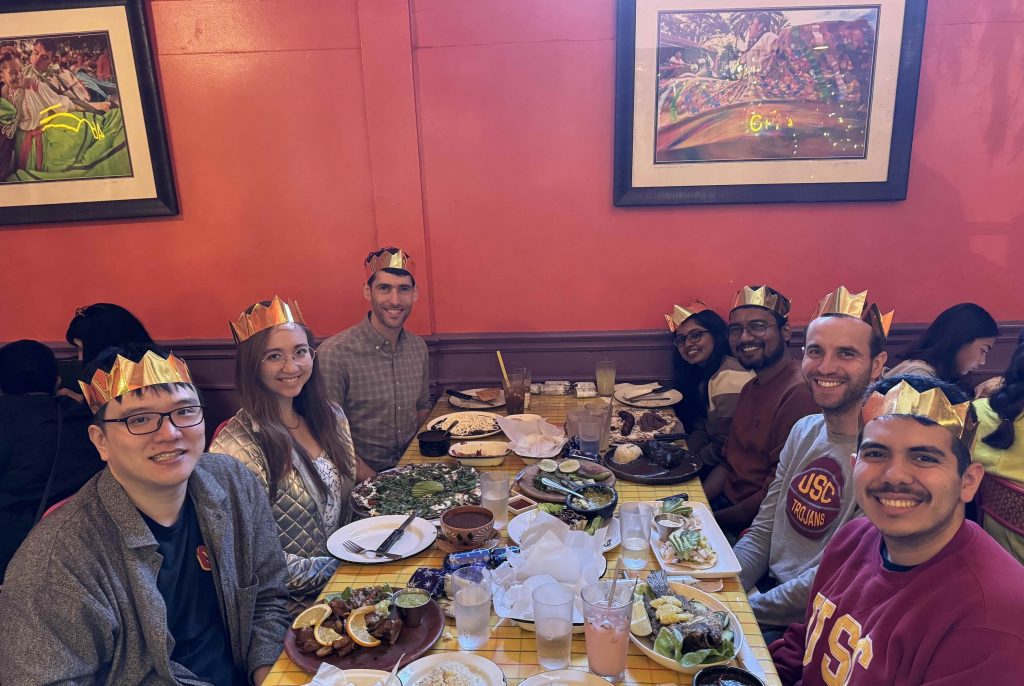
In new work led by Anupam we reveal that choice of network logic in ODE modeling of gene regulatory networks plays an underappreciated and oversized role in determining cell fate outcomes. In application to tristable EMT landscapes, we show that it is critical to consider the choice of logic when constructing models.
By mapping out transition paths dictated by logic we provide methods with which to infer the logic used by gene circuits in live cells undergoing EMT through simple perturbation experiments. Read the paper on bioRxiv.
Our paper on the origins of stem cell variation is out now in Nature Communications. Using fluctuating methylation clocks as barcodes to measure blood stem cell clonal composition in twins… we show that the variation in the hematopoietic stem cell pool that (in most of us) leads to clonal hematopoiesis in later life is likely present before birth. Led by postdoc Jesse in collaboration with Jazlyn Mooney (QCB) and Darryl Shibata (USC Keck).
Adam visited Brown University to give a seminar at the Center for Computational Molecular Biology He spoke about recent work from the lab on the inference of gene regulatory network dynamics in single cells. The talk was recorded and is available here.
MeiLu has submitted a paper (available on bioRxiv) describing her work revealing intermediate EMT state dynamics through integrated data analysis and modeling of the cell state transitions that occur during EMT. Through this analysis, we discovered new marker genes associated with the dynamics of EMT. Congratulations MeiLu!
Adam visited Columbia University to give a seminar at the Irving Institute for Cancer Dynamics, where he spoke about inferring cell fate networks that control outcomes in complex cancer microenvironments.
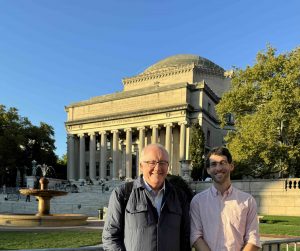
Adam visited the Leibniz Institute on Aging – Fritz Lipmann Institute in Jena, Germany, on the rather idyllic (albeit hot) Saale river. He gave a seminar on recent work from the lab discussing models of stem cell aging, hosted by the Rudolph lab.
A new international grant jointly funded by the NSF and the DFG supports the collaborative research project of the MacLean/Rudolph labs in which we are investigating subpopulation dynamics of IGF pathway-perturbed hematopoietic stem cells throughout life.
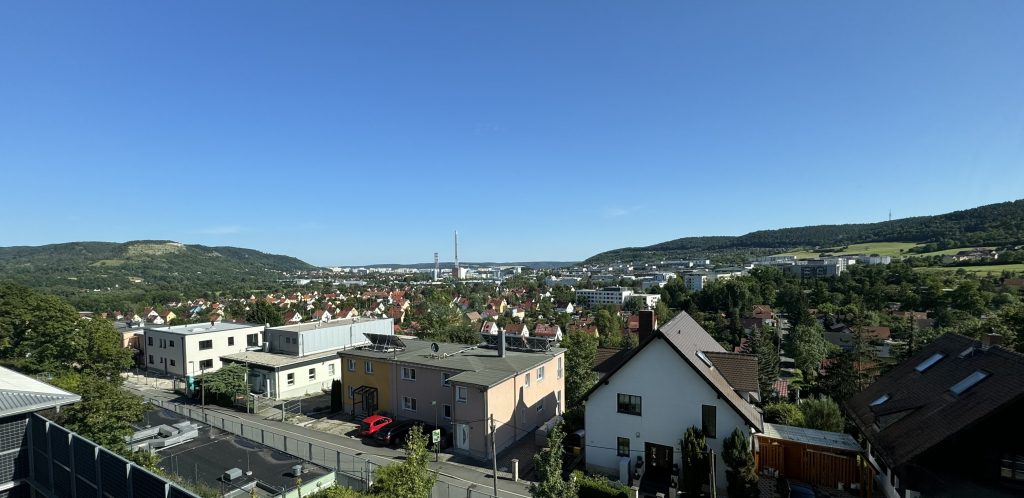
Our commentary on stem cell aging in out now in Blood. In which we discuss a new research article that sheds light on the role of niche cells in hematopoietic stem cell aging. The Trowbridge lab reveals that a reduction in signals from mesenchymal stromal cells is in part responsible for the impaired hematopoiesis that occurs during aging. Yet a big open question remains: are the age-related changes to HSCs due to aged niche cells directly, or due to changes in cell-cell communication to HSCs mediated by systemic factors.

Congratulations to lab alumni Nikith Kurella who has begun his journey at medical school at Vanderbilt. Nikith conducted research into Wnt signaling pathway dynamics during his time in the lab and contributed to popInfer: gene regulatory network inference for multi-omics data. Best of luck to you Nikith at Vanderbilt!
